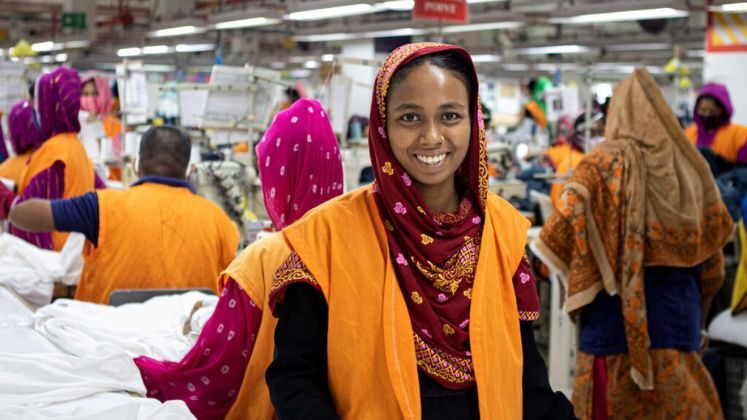
After a review of inflation-adjusted rates, a crucial decision on the creation of a new minimum wage for Bangladeshi garment workers is expected by April 2025. To review the existing wage system, a committee headed by a second secretary from the Ministry of Labour and Employment has been formed. At a meeting aimed at resolving the 18-point demands put up by employees in September, this news was given.
Asif Mahmud Shojib Bhuiyan, a Ministry of Labour and Employment adviser, presided over the meeting, which was held at the Secretariat. By April of next year, the newly established committee—which has equal participation from labour and factory owners—must advise the Ministry on whether a revision of the minimum wage is feasible. There have already been two meetings, and the next one is set on 20th November.
Over 99 percent of firms that are members of the Bangladesh Garment Manufacturers and Exporters Association (BGMEA) have complied with the previous minimum wage of Taka 12,500, which was set in late November of last year, according to the Ministry of Labour and Employment. By October, at least 2,121 of the 2,140 factories had adopted this wage; the remaining 19 factories were in compliance.
Production losses of around $400 million have resulted from the recent instability in the apparel industry, which was characterised by labour unrest in September and October. Asif Mahmud acknowledged the difficulty of implementing worker arrears, particularly when some manufacturing owners are unable to obtain cash due to bankruptcy.
AHM Shafiquzzaman, Labor and Employment Secretary stated that changes to the labour legislation are expected to bring it into compliance with international norms by March 2024. As promised at the 352nd session of the International Labour Organization’s (ILO) Governing Body, which was held in Geneva, this revision would be implemented through an ordinance.
In addition, a tripartite group is now investigating possible labour law modifications that would relax document requirements and trade union laws. Around 80.55 percent of factories have set up childcare centres for their employees, according to the data. The BGMEA is responsible for making sure the remaining factories are in compliance.
To improve the enforcement of pay structures, the Minimum pay Board has suggested amendments to the labour code. This follows other revisions made in response to demand from around the world, such as those made after the collapse of the Rana Plaza building in 2013.
The future of labour rights and wage standards for garment workers continues to be a major topic of discussion amongst stakeholders in Bangladesh’s vital garment industry as the Ministry of Labour and Employment advances these initiatives.






